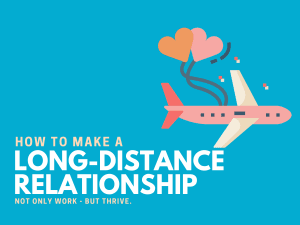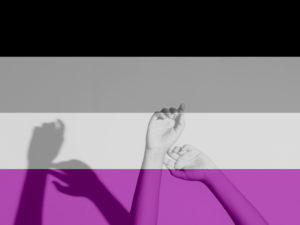Even if you’re forgiving of others, you might struggle in knowing how to forgive yourself. Guilt serves a purpose; it tells us what we did wrong. But once we’ve done all we can to fix the situation, lingering guilt no longer serves us.
It sometimes feels like we deserve guilt, as though this feeling is part of our punishment. But if you don’t find out how to forgive yourself, you’ll never be able to learn from your mistakes and grow as an individual.
Here are some thoughts on the feeling of guilt and how to use it as a motivator in forgiving yourself.
Understanding the Emotion of Guilt
No one enjoys the feeling of guilt. That sickening feeling in the pit of your stomach, that small bit of disgust you hold for what you did wrong. It’s one of the most painful, negative emotions you can feel.
But guilt, like any other emotion, serves a purpose. It’s like the feeling of physical pain. While it isn’t enjoyable to feel pain, it’s our body’s way of telling us that something is wrong. Pain forces us to pay attention to our body’s warning signs and seek help or stop engaging in painful activity, as it’s likely harmful.
Guilt teaches us that we did something wrong, and we should avoid doing it again. It’s a powerful tool in teaching us how to be better people. When you feel guilty, it likely means you won’t want to make the mistake again. You can then learn from your mistake and grow as a person.
Guilt becomes unhelpful when felt in excess. If we don’t take steps to make amends and then forgive ourselves, we won’t be able to move forward. If you continue to wallow in guilt and shame, they serve no purpose. You aren’t taking action steps to grow.
So here are some tips on how to use guilt productively to move past your mistake and become a better person.

Make Amends
You wouldn’t forgive someone if they haven’t made an effort to rectify their mistake. So you won’t be able to forgive yourself until you’ve done all you can to fix what you did. Apologizing to people you’ve hurt after you’ve done the work to repair the damage you caused is a necessary step when learning how to forgive yourself.
If you made a big mistake at work, do everything you can to help fix it. Use it as a learning opportunity to become a better professional. Apologize to those you’ve inconvenienced, from co-workers, to clients, to your boss.
If you said something rude to a friend, explain to them why you know what you said was wrong. Promise to think before you speak in the future. Apologize for hurting them.
Not everyone will accept your apology. But that doesn’t mean you shouldn’t do what you can to fix the situation. And the ability to forgive yourself does not depend on external forgiveness. You don’t need to wait on them in order to give forgiveness to yourself.
Once you’ve done everything you can to earn forgiveness from others, it’s time to try to forgive yourself. Even if you just need to give them space and time to work on their journey of forgiveness, it’s imperative you start yours.
Learning How to Forgive Yourself Like You Would Others
Some people are quick to forgive others but slow to forgive themselves. Once you reframe the emotion of guilt as a learning experience, you can start to learn how to forgive yourself.
If you’re one of these people, try to consider the situation from an outsider’s perspective. You’re a fly on the wall viewing the mistake and how you handled the situation.
As a bystander, would you think you’re worthy of forgiveness?
Why not? Do you think there’s more the transgressor could have done to make amends? Figure out what more you could do and then do it.
Then try the exercise again. If you still feel that guilt, and you’ve done all you can do, what purpose is it serving? Continue to think of it from the mind of an objective bystander.
Does it make sense to hold onto this guilt? Does feeling guilty do anything positive? Or is it stopping this individual from moving on and becoming a better person?
A good way to try out this tactic is through journaling. Write down all the facts and think about the situation logically. Guilt is a very emotionally charged feeling, so try to step back and use your head rather than your heart. You’ll probably find that excessive guilt doesn’t solve problems. You could feel all the guilt in the world and it won’t change the past. So let it go.

Forgive Yourself Quotes
If you’ve been carrying around guilt and sorrow, forgiving yourself isn’t easy. Pondering some thoughtful, inspiring quotes might give you direction on how to forgive yourself. Here are some quotes that will help guide you on your journey.
- “Never forget that to forgive yourself is to release trapped energy that could be doing good work in the world.” ― D. Patrick Miller
- “Perhaps, if you knew then what you know now you would have done it differently. You are a different person today. Forgive yourself, and move on.” ― Germany Kent
- “Forgiveness is man’s deepest need and highest achievement.”― Horace Bushnell
- “I have learned, that the person I have to ask for forgiveness from the most is: myself. You must love yourself. You have to forgive yourself, everyday, whenever you remember a shortcoming, a flaw, you have to tell yourself “That’s just fine”. You have to forgive yourself so much, until you don’t even see those things anymore. Because that’s what love is like.” ― C. JoyBell C.
People feel like they need to carry guilt with them forever. But punishing yourself with guilt is not the emotion’s intended purpose. For your own mental health and for your development as an individual, you deserve to learn how to forgive yourself.
Author, Artist, Photographer.
Sarah Margaret is an artist who expresses her love for feminism, equality, and justice through a variety of mediums: photography, filmmaking, poetry, illustration, song, acting, and of course, writing.
She owns Still Poetry Photography, a company that showcases her passion for capturing poetic moments in time. Instead of poetry in motion, she captures visual poetry in fractions of a second, making cherished keepsakes of unforgettable moments.
She is the artist behind the Still Poetry Etsy shop, which houses her illustrations and bespoke, handmade items. She is the author of intricacies are just cracks in the wall, a narrative poetry anthology that follows a young woman discovering herself as she emerges from an abusive relationship.
- Sarah Margaret Henryhttps://www.womensbusinessdaily.com/author/sarah-margaret-henry/
- Sarah Margaret Henryhttps://www.womensbusinessdaily.com/author/sarah-margaret-henry/
- Sarah Margaret Henryhttps://www.womensbusinessdaily.com/author/sarah-margaret-henry/
- Sarah Margaret Henryhttps://www.womensbusinessdaily.com/author/sarah-margaret-henry/






